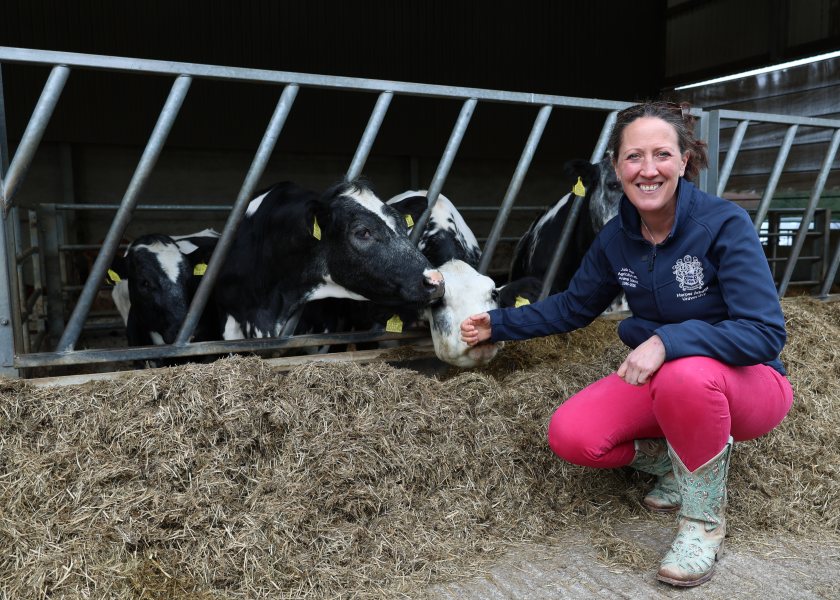
British red meat is ready to prove it can be both sustainable and productive – and it has the data to back it up, according to a new £1.5m farmer-led initiative.
Red meat processing giant ABP has launched PRISM 2030, aimed at reducing the environmental impact of beef and lamb while providing robust data to inform policy and procurement decisions.
“For most shoppers, choosing beef or lamb is a quick decision,” said Phil Hambling, ABP’s director of agriculture and sustainable sourcing.
"Busy consumers want confidence that the job is being done right, that their meat has been produced to high standards of welfare and sustainability – and then they want to enjoy their meal.”
PRISM 2030 involves more than 300 farmers across the UK, from Orkney to the Isle of Wight. Each has undergone detailed carbon footprint assessments using the Agrecalc tool, followed by tailored guidance from the Andersons Centre and Professor Jude Capper of Harper Adams University.
“There’s been a lot of attention on livestock emissions, but it often overlooks the nuance of British systems,” Mr Hambling added. “Unlike many other sectors, agriculture doesn’t operate in a neat production line; it’s part of a complex natural cycle.
"British farms manage carbon, nutrients, biodiversity and animal welfare in an integrated way and have an incredibly strong sustainability story to tell, but that story has been undersold.
"With accurate data and academic insight, we can back up the continuous improvements being made and give consumers the confidence they need.”
Professor Capper stressed the importance of tailored, practical improvements. “There’s no silver bullet. Every farm is different, so it’s about finding the small, practical improvements that make sense for your system – whether that’s improving grazing, refining breeding or reducing waste.
"These changes might seem minor on their own, but when hundreds of farmers are making them, the cumulative impact is substantial.”
Farmers involved in the programme have already seen tangible benefits. Billy Cuthbertson, who runs a 400-acre livestock unit in North-East Fife, said it’s not about chasing a perfect carbon score.
"It’s about finding the improvements that suit your farm, make sense for your individual system, and help the business move forward in a positive manner," he explained.
Similarly, Perthshire farmer Adrian Ivory highlighted the commercial benefits: “PRISM gave us a way to test and track our assumptions. We’ve brought down age at slaughter, increased our in-calf rate and introduced rotational grazing.
"All of that improves performance, which reduces emissions. And when you’re running a commercial farm, you realise that reducing your carbon footprint can often lead to improvements in the bottom line.”
Mr Hambling sees PRISM 2030 as a catalyst for broader change in the industry: “Around 90% of red meat’s carbon footprint sits on farm. That’s where the biggest opportunities lie, and it’s our responsibility to support farmers in making practical, informed improvements,” he said.
“British red meat has a strong story to tell when it comes to carbon emissions and productivity. We’re improving all the time, and we’ve got the data to prove it. Now’s the time to share that with pride."
